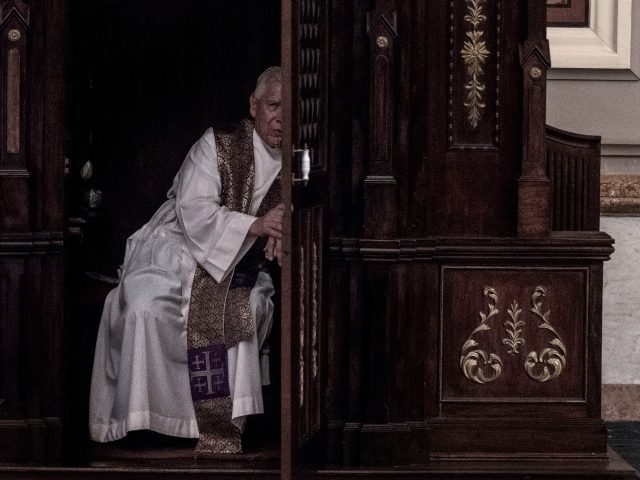ROME — The Vatican has reasserted the absolute inviolability of the sacramental seal of confession, insisting that priests should be prepared to “shed their blood” before ever divulging information heard in the confessional.
“There seems to be a certain worrisome ‘negative prejudice’ towards the Catholic Church,” stemming in part “from the recent abuse scandals, horribly perpetrated by certain members of the clergy,” declares the 3300-word text released Monday by the Vatican’s Apostolic Penitentiary with the explicit approval of Pope Francis.
This prejudice “sometimes results in the unjustifiable demand that the Church itself bring its juridical system into conformity with the laws of the states in which it finds itself living, as the only possible ‘guarantee of fairness and rectitude,’” the strongly worded text reads.
Recent proposed legislation in California would seek to oblige priests to reveal pertinent information heard in the course of sacramental confessions.
California already requires priests, teachers, social workers, doctors, and other professionals to report any case of suspected sexual abuse of a minor to authorities. The law provides for an exemption for any clergy member “who acquires knowledge or a reasonable suspicion of child abuse or neglect during a penitential communication.”
The legislation, S.B. 360, which passed in the California Senate by a vote of 30-2 on May 23, would eliminate the clergy exemption that currently exists in California law.
The bill is up for a vote in the lower house, the California State Assembly, next September.
While not citing the proposed legislation, the new Vatican document seems to respond to it directly as well as to any other legal attempts to compel priests into breaking the seal of the confessional.
“Any political action or legislative initiative aimed at breaking the inviolability of the sacramental seal,” the document states, “would constitute an unacceptable offense against the liberty of the church, which does not receive its legitimacy from individual states, but from God.”
Such an action would also mean “a violation of religious freedom, the juridical foundation of all freedoms, including freedom of conscience of individual citizens, whether penitents or confessors,” it adds.
The sacramental seal “is indispensable for the sanctity of the sacrament and for the freedom of conscience of the penitent, who must be certain, at all times, that the sacramental conversation will remain in the secret of the confessional, between one’s conscience that is open to grace and God, with the necessary mediation of the priest,” it states.
“The sacramental seal is indispensable and no human power has jurisdiction over it or can claim to,” it adds.
The document repeats directive given to priests prior to their ordination, that they should be willing to give their lives rather than ever divulge information learned in the confessional.
A confessor’s “defense of the sacramental seal, up to the shedding of blood if necessary, represents not only an act of due loyalty toward the penitent,” the text says, “but much more, a necessary witness – a ‘martyrdom’ – made directly to the salvific unicity and universality of Christ and the Church.”

COMMENTS
Please let us know if you're having issues with commenting.